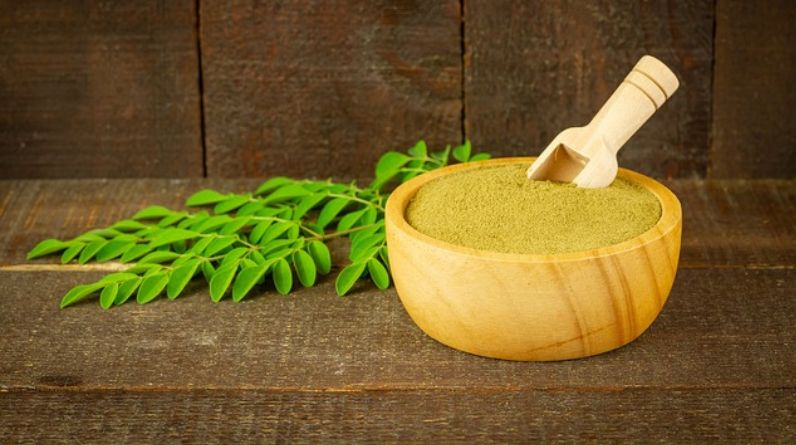
It might be difficult to keep up with a balanced, nourishing diet in today’s fast-paced society. Superfood supplements offer a convenient way to enhance our nutritional intake and support overall health. These supplements are made from nutrient-dense powders derived from various plant-based foods, such as fruits, vegetables, herbs, and algae. Packed with vitamins, minerals, antioxidants, and other beneficial compounds, superfood supplements can help bridge the nutritional gap and provide a natural boost to our well-being. In this comprehensive guide, we will explore the world of superfood supplements, their benefits, and how they can support a healthy lifestyle.
Introduction
Nutrient-dense foods known as “superfoods” are thought to be particularly good for your health and wellbeing. They are typically packed with vitamins, minerals, antioxidants, and phytochemicals that offer numerous health benefits. Superfood supplements, available in powder form, provide a convenient way to incorporate these nutrient-dense foods into our daily routine. Whether used as a dietary supplement, added to smoothies, or mixed into recipes, superfood powders offer a concentrated source of nutrition to support optimal health.
Understanding Superfood Supplements
Superfood supplements are derived from a wide range of plant-based sources, each offering unique nutritional profiles and health benefits. These powders are made by drying and processing superfoods into a fine powder form while retaining their vital nutrients. Some common superfood powders include spirulina, wheatgrass, maca, acai berry, matcha green tea, and moringa.
Key Benefits of Superfood Supplements
Incorporating superfood supplements into our diet can offer several benefits:
1. Increased Nutritional Intake
Superfood supplements provide a convenient way to boost our nutritional intake. They are rich in essential vitamins, minerals, and antioxidants that our bodies need for optimal health. Superfood powders offer a concentrated source of nutrients that may be lacking in our regular diet.
2. Antioxidant Support
Superfoods are known for their high antioxidant content. Antioxidants help neutralize free radicals in the body, reducing oxidative stress and protecting against cellular damage. Superfood supplements can provide an extra dose of antioxidants to support overall well-being and promote healthy aging.
3. Energy and Vitality
Many superfoods contain natural compounds that can support energy levels and enhance vitality. These powders can provide a natural boost to our day, helping to combat fatigue and increase stamina. Superfood supplements may also support healthy metabolism and promote overall vitality.
4. Immune Support
The vitamins, minerals, and phytonutrients found in superfood supplements can help support a healthy immune system. These nutrient-dense powders can provide the body with the necessary building blocks for immune function, helping to protect against common illnesses and promote overall wellness.
5. Digestive Health
Some superfoods are known for their digestive health benefits. They may contain fiber, enzymes, or other compounds that support a healthy digestive system. Incorporating superfood supplements into our diet can help promote regularity, support gut health, and aid in nutrient absorption.
Popular Superfood Supplements and Their Benefits
Various superfood supplements are available, each with its unique set of nutrients and benefits. Here are some popular superfood powders and their potential advantages:
1. Spirulina
Spirulina is a blue-green algae that is rich in protein, vitamins, minerals, and antioxidants. It is known for its immune-boosting properties, potential anti-inflammatory effects, and ability to support detoxification processes in the body.
2. Wheatgrass
Wheatgrass is a young grass from the wheat plant that is packed with nutrients, including chlorophyll, vitamins, minerals, and enzymes. It is often praised for its alkalizing properties, potential detoxification benefits, and ability to support healthy digestion.
3. Maca
A root vegetable called maca is indigenous to Peru’s Andes. It is rich in vitamins, minerals, and plant compounds that may support hormone balance, enhance energy levels, and promote overall well-being. Maca is often used to support vitality, stamina, and libido.
4. Acai Berry
Acai berries are small, dark purple fruits native to the Amazon rainforest. They include a lot of fiber, healthy fats, and antioxidants. Acai berry powder is known for its potential anti-inflammatory effects, antioxidant properties, and ability to support cardiovascular health.
5. Matcha Green Tea
Matcha is a type of powdered green tea that is derived from shade-grown tea leaves. It is known for its high content of antioxidants, specifically catechins and epigallocatechin gallate (EGCG). Matcha green tea powder can provide sustained energy, mental clarity, and potential metabolic benefits.
6. Moringa
Moringa is a tree native to parts of Africa and Asia. Vitamins, minerals, and antioxidants abound in its leaves. Moringa powder is known for its potential anti-inflammatory effects, ability to support healthy blood sugar levels, and provide a natural energy boost.
Incorporating Superfood Supplements into Your Routine
Take into account the following recommendations while introducing superfood supplements into your routine:
1. Quality and Source
Choose high-quality superfood supplements from reputable brands or sources. Look for products that are organic, free from additives, and have been tested for quality and purity. This ensures that you are getting the most beneficial and nutrient-rich powders.
2. Start Slow and Monitor Effects
Introduce superfood supplements gradually into your diet. Start with small doses and observe how your body responds. Some individuals may be more sensitive to certain superfoods. Stop using immediately and seek medical advice if you have any negative effects.
3. Variety and Rotation
Incorporate a variety of superfood supplements into your routine to ensure a diverse range of nutrients. Rotate between different powders to obtain a wide spectrum of health benefits. This also prevents overexposure to specific compounds or potential nutrient imbalances.
4. Pair with a Balanced Diet
Superfood supplements should be used to complement a balanced diet rich in whole foods. They are not meant to replace the nutritional value of a diverse and nutrient-dense diet. Aim to consume a wide range of fruits, vegetables, whole grains, lean proteins, and healthy fats alongside superfood supplements.
Frequently Asked Questions
1. Are superfood supplements necessary if I have a healthy diet?
Superfood supplements are not necessary if you have a healthy and well-rounded diet. However, they can be a convenient way to enhance your nutritional intake, especially if you have specific dietary restrictions or struggle to consume a variety of nutrient-dense foods.
2. Are superfood supplements suitable for everyone?
Superfood supplements are generally safe for most individuals. However, some people may be allergic or sensitive to certain superfoods. It’s important to read product labels, start with small doses, and discontinue use if you experience any adverse reactions. If you have any underlying health conditions or take medications, consult with a healthcare professional before using superfood supplements.
3. Can superfood supplements replace fruits and vegetables?
Superfood supplements should not replace whole fruits and vegetables in your dietas they do not provide the same fiber content and other beneficial compounds found in whole foods. Prioritizing a diet that is well-balanced and diverse and contains a variety of fruits, vegetables, whole grains, lean meats, and healthy fats is crucial. Superfood supplements can be used as a complement to enhance your nutrient intake, but they should not be relied upon as a sole source of nutrition.
4. Can I take multiple superfood supplements together?
Taking multiple superfood supplements together is possible and can provide a range of health benefits. However, it’s important to be mindful of the dosage and potential interactions between different supplements. Start with low doses and pay attention to how your body reacts. If you have any concerns or are taking medications, consult with a healthcare professional before combining multiple superfood supplements.
5. Can superfood supplements help with weight loss?
Superfood supplements alone are not a magic solution for weight loss. However, incorporating nutrient-dense superfoods into a balanced diet can support overall health and weight management. Superfoods are often low in calories and rich in nutrients, which can help promote satiety and provide the body with essential vitamins and minerals. It’s important to combine superfood supplements with a healthy lifestyle that includes regular physical activity and a calorie-controlled diet for effective weight management.
6. What are superfood supplements, and how can they boost nutrition?
Superfood supplements are concentrated powders or capsules that contain nutrient-dense ingredients derived from natural sources, such as fruits, vegetables, herbs, and algae. These supplements are rich in essential vitamins, minerals, antioxidants, and other beneficial compounds that support overall health and well-being. They can help fill nutritional gaps, provide a convenient way to consume a variety of nutrients, and enhance overall nutrient intake.
7. What are some common superfood powders and their benefits?
There are various superfood powders available, each with its own unique benefits. Here are some common ones:
Spirulina: A nutrient-dense algae rich in protein, vitamins, minerals, and antioxidants that supports immune function and provides energy.
Wheatgrass: Contains chlorophyll, vitamins, minerals, and enzymes that promote detoxification, boost immunity, and support digestion.
Maca: Known for its adaptogenic properties, maca helps balance hormones, support energy levels, and enhance stamina.
Baobab: Packed with vitamin C, fiber, and antioxidants, baobab powder supports immune health, digestion, and skin health.
Acai: Contains antioxidants, healthy fats, and fiber, which can help support cardiovascular health, brain function, and digestion.
Cacao: Rich in antioxidants and minerals, cacao powder can boost mood, support heart health, and provide a natural energy boost.
8. How can superfood supplements be incorporated into a daily routine?
Superfood supplements can be incorporated into a daily routine in several ways. They can be added to smoothies, juices, or water for a nutrient-packed drink. They can also be sprinkled over breakfast bowls, yogurt, or added to homemade energy bars. Some superfood powders are available in capsule form for easy consumption. Experiment with different recipes and find creative ways to include superfood supplements in your meals and snacks.
9. Are superfood supplements a replacement for whole foods?
Superfood supplements are not meant to replace a balanced diet consisting of whole foods. While they provide concentrated nutrients, they should be used as a supplement to a well-rounded diet. Whole foods offer a variety of nutrients, fiber, and other beneficial compounds that work synergistically to support overall health. Superfood supplements can complement a healthy diet and help enhance nutritional intake, especially when whole foods may not be readily available or when specific nutrient needs are not being met.
10. Are there any potential side effects or interactions with superfood supplements?
Superfood supplements are generally safe when consumed as directed. But it’s crucial to be aware of any potential allergies or sensitivities to particular components. Some individuals may experience digestive discomfort or allergic reactions to certain superfood powders. It’s advisable to start with small doses, follow recommended guidelines, and discontinue use if any adverse reactions occur. If you have any underlying health conditions or are taking medications, it’s best to consult with a healthcare professional before incorporating superfood supplements into your routine.
11. Can everyone benefit from superfood supplements?
Superfood supplements can be beneficial for many individuals, but their suitability may vary depending on individual needs and health conditions. While superfood powders are generally safe, certain populations, such as pregnant or breastfeeding women, children, and individuals with specific health conditions, should exercise caution and consult with a healthcare professional before using superfood supplements. Healthcare professionals can provide personalized guidance based on individual health status and needs.
Remember, superfood supplements can offer a convenient way to boost nutrition and enhance overall well-being. However, they should be used as part of a balanced diet and healthy lifestyle. It’s important to select high-quality superfood supplements, consume them as directed, and prioritize whole foods for a well-rounded and nourishing approach to nutrition.





